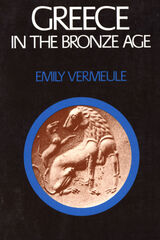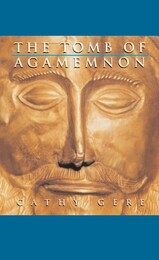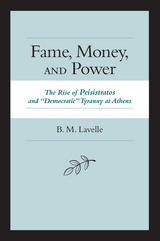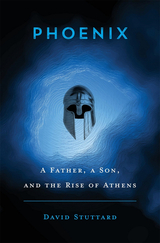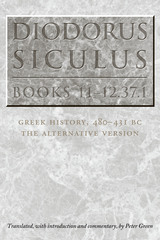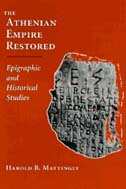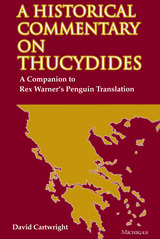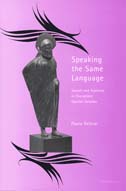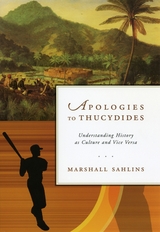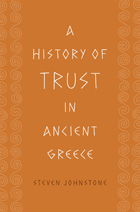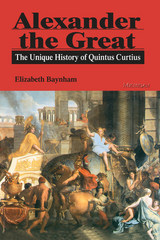A Historical Commentary on Thucydides: A Companion to Rex Warner's Penguin Translation
University of Michigan Press, 1997
Cloth: 978-0-472-10695-0 | Paper: 978-0-472-08419-7
Library of Congress Classification DF229.T6C37 1997
Dewey Decimal Classification 938.05
Cloth: 978-0-472-10695-0 | Paper: 978-0-472-08419-7
Library of Congress Classification DF229.T6C37 1997
Dewey Decimal Classification 938.05
ABOUT THIS BOOK | REVIEWS | REQUEST ACCESSIBLE FILE
ABOUT THIS BOOK
Much of the modern way of thinking about history and historiography in fact begins with the great Greek historian Thucydides, an Athenian general in the latter half of the fifth century b.c.e. It is also Thucydides who provides us with the historical framework for fifth-century Greece, a period of progress and creativity rarely equaled in human history. His work, The Peloponnesian War, recounts that destructive conflict and also includes the only surviving contemporary record of the rise of the Athenian empire. Thucydides teaches his readers that the most powerful states in the world can come to a humiliating end, that a careless tyranny, especially toward the weak, and, nearly two millennia before Machiavelli, that absolute power corrupts absolutely.
In A Historical Commentary on Thucydides, David Cartwright aims to guide the Greekless reader through Thucydides' fascinating yet demanding narrative. Cartwright's is the only such full-length, one-volume commentary and companion: it is based on Rex Warner's Penguin translation of Thucydides--the most widely used translation--and requires no knowledge of Greek. The introduction to A Historical Commentary on Thucydides includes a brief biography of Thucydides: his approach, aims, and methods are discussed, as are the general character of his work and his contribution to historiography. The commentary gives brief accounts of the people and places mentioned by Thucydides and puts events in their immediate and wider contexts. Cartwright provides occasional summaries, explains Greek concepts and technical terms, and offers interpretations of difficult or controversial passages. The author also picks out important historiographical issues and discusses the themes' underlying events.
For both first-time readers and seasoned students, this commentary gives broad access to one of antiquity's most profound and difficult writers. Historians, classicists, and anyone else interested in the cultural and intellectual achievements of ancient Greece will find A Historical Commentary on Thucydides a welcome addition to their library.
David Cartwright is Head of Classics at Dulwich College, London, England.
In A Historical Commentary on Thucydides, David Cartwright aims to guide the Greekless reader through Thucydides' fascinating yet demanding narrative. Cartwright's is the only such full-length, one-volume commentary and companion: it is based on Rex Warner's Penguin translation of Thucydides--the most widely used translation--and requires no knowledge of Greek. The introduction to A Historical Commentary on Thucydides includes a brief biography of Thucydides: his approach, aims, and methods are discussed, as are the general character of his work and his contribution to historiography. The commentary gives brief accounts of the people and places mentioned by Thucydides and puts events in their immediate and wider contexts. Cartwright provides occasional summaries, explains Greek concepts and technical terms, and offers interpretations of difficult or controversial passages. The author also picks out important historiographical issues and discusses the themes' underlying events.
For both first-time readers and seasoned students, this commentary gives broad access to one of antiquity's most profound and difficult writers. Historians, classicists, and anyone else interested in the cultural and intellectual achievements of ancient Greece will find A Historical Commentary on Thucydides a welcome addition to their library.
David Cartwright is Head of Classics at Dulwich College, London, England.
See other books on: Companion | Greece | History of the Peloponnesian War | Peloponnesian War, 431-404 B.C | Thucydides
See other titles from University of Michigan Press


